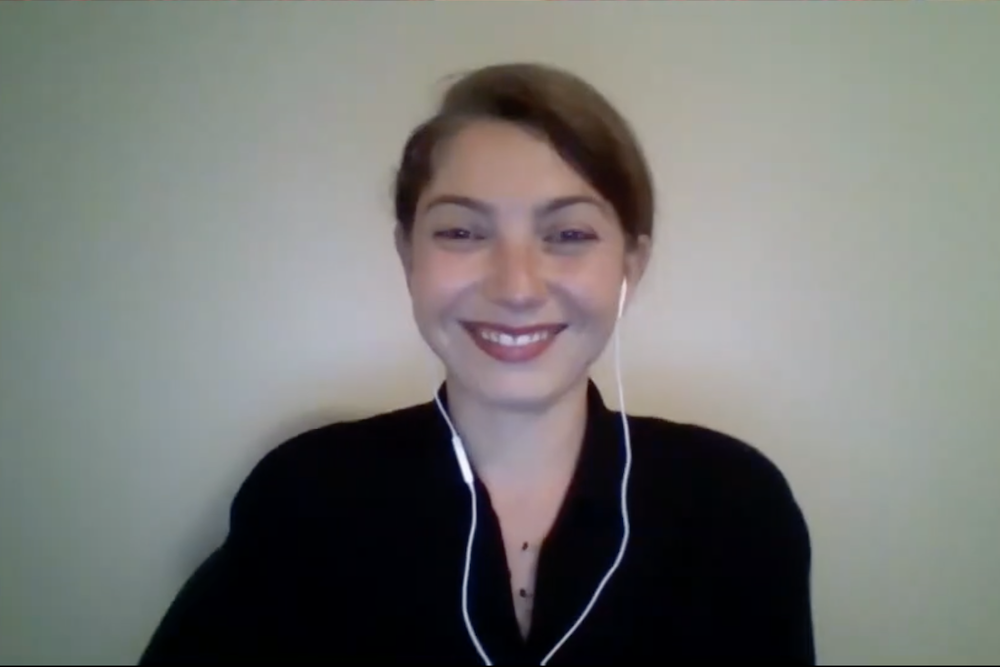
Assal Habibi during the virtual Zócalo event, “How Does Music Change Your Brain?”
Assal Habibi is an assistant research professor of psychology at the Brain and Creativity Institute at University of Southern California. Her research takes a broad perspective on how biological dispositions and environmental factors interact and how learning experiences during childhood shape human development. She’s also a classically trained pianist. Before speaking at a Zócalo event last March, titled “How Does Music Change Your Brain?,” she talked in the green room about walking in Irvine, good brain food, and the professors who made the biggest impact on her life.
What’s your favorite piece for piano?
I like most of Chopin—I don’t have a favorite among them.
Where do you go to be alone?
I really like to hike on my own. I live near Griffith Park, so I do take hikes there.
What’s the last book you read?
Catch and Kill by Ronan Farrow.
When should I sign my kids up for serious music or athletic training?
I would say high-quality, systematic training, not serious—the child should participate in activities that are stimulating. Music and sports are supposed to be fun.
What makes training systematic?
It would have a routine, if the classes meet twice a week, if the children have a schedule of practicing.
What, if anything, do you miss about Irvine, where you did your research previously?
The UC Irvine campus is absolutely beautiful, and green. And surrounded by a great space of parks. I really liked taking walks there.
What dessert can you not resist?
Anything with chocolate.
When you used to teach children music, how did you start a lesson?
I was really mindful of picking music kids really like, whether it was the theme of Spider-Man or SpongeBob SquarePants. A child, especially when they’re young, if they can play something they emotionally connect with, they are more likely to want to do that. I’d ask: What is it they like to sing and play around with on the radio? And take that song and do simple melodies.
What’s the best brain food?
If you’re talking about actual food: vegetables, omega-3s, protein, avocados, fish, healthy fats. In terms of a routine, sleep and exercise.
What’s the best advice you ever received?
Accepting things I can’t change, and putting my best effort into things that I can change.
What professor made the biggest impact on you?
There have been so many, including my thesis adviser. There is also a professor named Nicole Gage—a professor of cognitive science at UC Irvine. I started as a research assistant in her laboratory when I was an undergraduate. First, seeing a woman at that academic level was really inspiring. Even though her work was with brain and language, it drew the parallels with me to music, and considering music as another language. I became very interested in exploring the same questions she was exploring.



